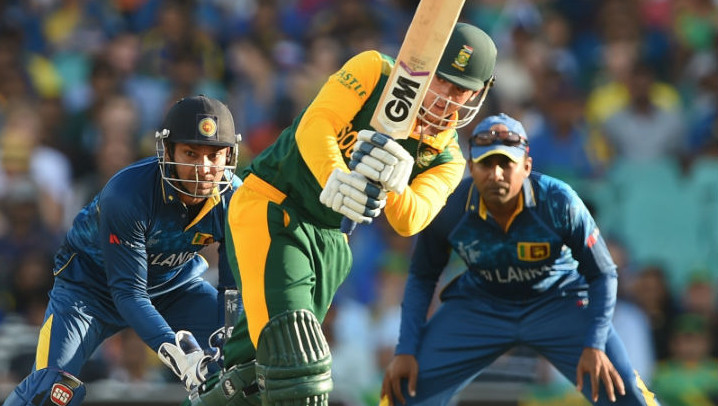Opening with Rilee Rossouw and pushing Quinton de Kock to No 6 could solve South Africa’s batting problems.
The Proteas were never favourites to win the 2015 World Cup. Their results since the start of the four-year cycle in late 2011 have not inspired confidence. Their performances in Australia this past November were erratic and contributed to some disappointing losses. They traveled to the global tournament with more hope than belief that they could claim that elusive title.
Unfortunately, they have fared far worse than most would have expected. Two losses and some poor showings over the course of the pool stages have put them in a difficult position. Regardless of what transpires in their final Pool B game against the UAE on Thursday, South Africa will head into the quarter-finals low on confidence.
While the Proteas were never favourites to win this World Cup, there was some expectation. At the very least, South Africa were expected to win a play-off game, and end a losing streak in World Cup knockout games that stretches back to 1992.
They would do well to achieve this objective from here. Unless some important changes are made over the next week or so, the class of 2015 will become another statistic. The players need to pick themselves up, and the brains trust also needs to respond in the wake of that defeat to Pakistan.
The Proteas have learned a great deal over the first five matches of the current campaign. It was always felt that AB de Villiers would be central to South Africa’s cause, but what recent games have confirmed is that he must be allowed to focus on his batting. De Villiers is the one player who can hold his head high after the batting debacle in Auckland. The Proteas skipper will head into the play-offs with confidence in his own form and ability, and the selectors would be foolish to saddle De Villiers with an added responsibility, namely the wicketkeeping duties, at this stage.
If the Proteas persist with De Villiers as a specialist batsman, they will also need to persist with Quinton de Kock as their designated wicketkeeper. What will need to change, however, is De Kock’s place in the batting order.
The young left-handed batsman was injured in the lead-up to the World Cup, and missed a lot of cricket as a result. He has failed to find form in the pool stages of this tournament, with scores of 7, 7, 12, 1, and 0. De Kock was the victim of a superb delivery from Mohammad Irfan in the game against Pakistan, and the humourless smile he wore on his trudge back to the dressing room said much for his state of mind.
He can still add value as a batsman, but it would be a risk to persist with him as an opener in the coming play-off. At this stage, the selectors should be looking to ease the pressure on the 22-year-old. They should also start to think about how another failure could impact on South Africa’s other opener, Hashim Amla, as well as No 3 Faf du Plessis. Amla and Du Plessis have coped with such pressure to date, but that will not go on indefinitely.
Rilee Rossouw was out hooking in the game against Pakistan. It was one of the few mistakes he’s made over the past few months. Prior to the game in Auckland, he had proved to be one of the finds of the tournament. That knock of 61 against the West Indies certainly lifted the South African innings at a key juncture in the match. Indeed, the Proteas may have lost three big games instead of two if not for Rossouw’s contribution.
He has the temperament to play the situation, and should be back to open alongside Amla for the remainder of South Africa’s campaign. The next game against the UAE will serve as a warm-up for the play-offs. It would be wise to make the change now, and allow the Proteas an opportunity to settle into the new combination.
De Kock can still play a role with the bat at No 6. To reiterate, De Villiers is too important a batsman to be burdened with the wicketkeeping responsibilities, as it may detract from his batting. De Kock should keep the gloves, and contribute as a middle-order batsman. Providing the top order fires, there will be less pressure on him at No 6, and he should be encouraged to play his shots.
JP Duminy must remain at No 7, as he has shown over the past year or so that he can marshal the tail. That is a batting lineup that has the potential to blast South Africa into the semi-finals, and break the play-off curse.







